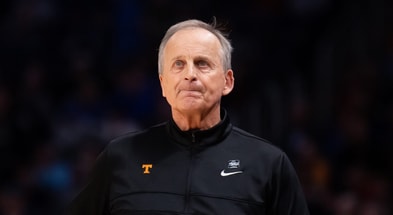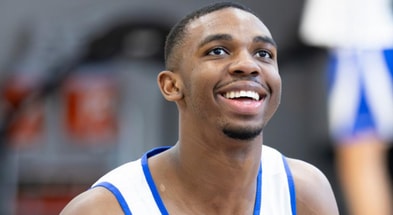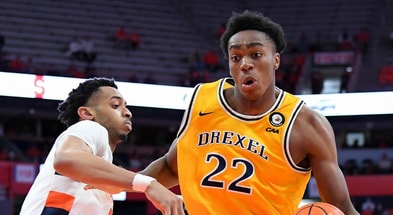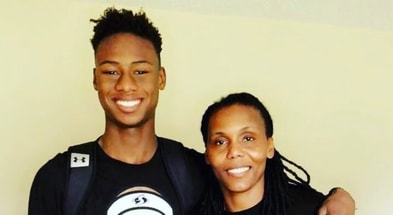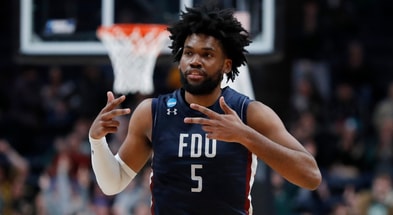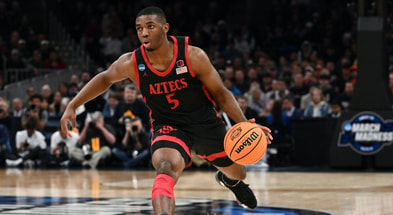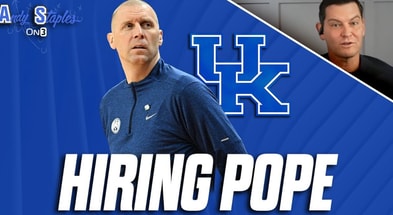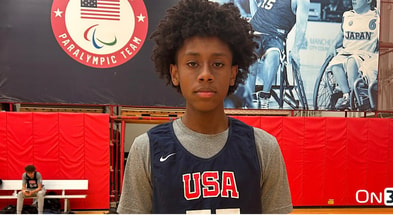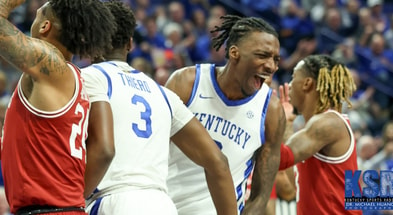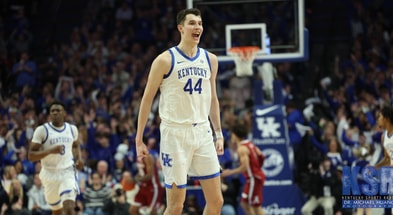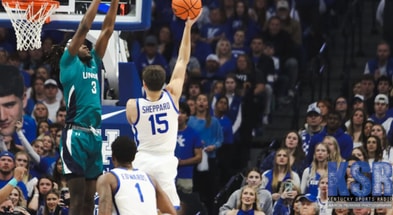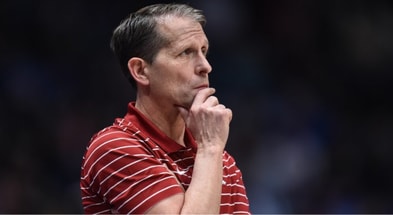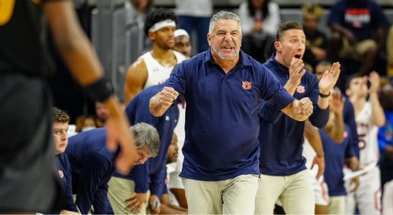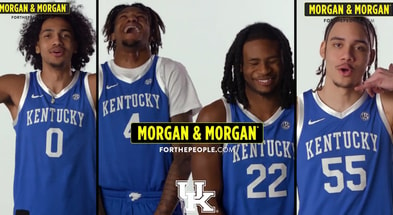'You've Got an NBA Prospect': Drexel's Head Coach Breaks Down Amari Williams' Game

[Ed. Note: This article is from KSR+, KSR’s premium sister site. We’ve unlocked it to give you an idea of the content on KSR+. For more bonus coverage of the Cats and access to KSBoard, our message board, subscribe to KSR+.]
Amari Williams was Kentucky Basketball’s first transfer addition in the 2024 offseason. A lot has happened since he committed on April 21.
Now, with nearly a full roster intact, Williams is expected to carry a big load in the post for Kentucky. It’s something he did increasingly over the last four years at Drexel. Drexel head coach Zach Spiker coached Williams from 2020-24, getting a first-hand look at Kentucky’s new transfer. KSR+ talked with Spiker about what UK fans can expect this season.
“He’s a dynamic center, elite passer, game-changing shot blocker, and a very fluid mover for a player his size,” Spiker told KSR+. “You’ve got a pro. You’ve got an NBA prospect. I wish nothing but the best for him and Kentucky this year.”
Recruiting Amari Williams Out of the U.K.
Zach Spiker and Drexel started recruiting out of Myerscough College Basketball Academy in London, England before they even knew about Amari Williams. They were recruiting another player when Williams caught their eye. Monte Oakers
“When you go to watch him play, you see some of the other guys, but you make a mental note to yourself of, that’s one to follow,” Spiker said.
Once Williams committed to Drexel there were further challenges in getting him ready for the college level. For starters, he was predominantly left-handed and jumping off only his right leg.
“Our level of play and standard of how hard we were going to play is always a transition for high school kids at any level,” Spiker said. “He was playing behind a 1,000-point, 1,000-rebound guy [James Butler]. When that guy went down with an injury, Amari was thrust into the starting lineup. He had a lot of minutes thrown his way as a redshirt (COVID) freshman. He made some massive strides in the conditioning space that I don’t think many people had anticipated him making.”
Amari Williams’ Greatest Strengths
If you ask Zach Spiker, Amari Williams has three great strengths. The first is his timing and athleticism to alter shots at the rim.
“His block rate doesn’t compare to his impact on the game,” Spiker said. “This year, they were down a little bit, but it was because of his reputation as a shot blocker that people wouldn’t even go in there. They’d dribble in and turn right back around. That doesn’t count as a shot block or even a shot alter, but he has a very large presence in the paint defensively.”
Then, there’s his passing. Spiker, who was in Jacksonville for the Coastal Athletic Conference league meetings, recently attended a Jacksonville Jaguars practice where he saw similarities between Williams and an NFL quarterback.
“You hear the phrase in the NFL about guys throwing people open. There isn’t really a window, but you lead him enough to where he becomes open,” Spiker said. “Amari will throw cutters open. There are video clips of him throwing to his own teammates where he had the vision to bounce it. It would hit them in the hands and they weren’t even expecting the ball when he first got here. He has the ability to throw guys open to get buckets like a quarterback.”
The last key strength is his ability to get rebounds. From there, he can take the ball and start a fastbreak in transition.
“He can sometimes even bring up the ball himself,” Spiker said. “Kentucky fans are going to love that if it’s something he’s permitted to do. He’s a playmaking center, a playmaking five-man. He’s not the traditional center and when he gets the ball he’s a dangerous weapon.”
Leading by Example
Amari Williams might not stand out as a leader on first impression, but his leadership is felt throughout the program. Zach Spiker called him a “lead-by-example guy.”
“He’s not a loud voice,” he said. “That’s not to say he’s quiet or shy. As he gets to know guys, he has relationships for sure. He’s more of a lead-by-example guy than being outwardly vocal and telling guys what they have to do. You can lead in a lot of different ways and you can be a very effective leader in those ways.”
That doesn’t mean Williams can’t have a big presence. Defensively, his presence is felt in massive ways.
“Defensive presence covers that for me. When I say he has a large defensive presence, he’s active,” Spiker said. “In small windows, he’s able to switch out to guards and be disruptive on the perimeter. He can guard ball screens multiple ways, call out the action, and cover ground and get deflections. Deflections are a reflection of activity and energy spent on the defensive end of the floor. He can certainly do that.”
Transitioning to SEC Play
Zach Spiker has spent the last eight seasons at Drexel. He was the head coach at Army for seven years before that. While Spiker has not coached in the SEC, he knows what it takes to get a player ready after a transfer. He has somewhat of an idea of the challenge Williams has ahead of him.
“Anytime we inherit one-year guys, there is a transition period, just like there is a traditional transition for a junior college player,” Spiker said, noting the importance of summer for every school with the influx of transfers. “This summer and the time with his teammates will be very, very important for them to gel quickly to put Kentucky in a position to have success and compete for a national title.”
Because he was smaller at a younger age, Williams had to develop a lot of guard skills over the years. Now that he stands at 6-foot-10, 265 pounds, he’s continuing to adjust to controlling the post.
“He’s very comfortable passing and playing on the perimeter,” Spiker said. “[Amari] has improved a great deal scoring down low in the post, but going down low, back-to-the-basket against size will be something he’ll continue to work on. He’s improved a great deal with it and made a lot of progress. It’s like a vitamin. You continue to do those drills daily. He’s made a lot of progress with it. He can score over both shoulders.”
There were some questions about Williams seeing a decrease in minutes played throughout the season. Spiker said that was largely due to increased margins of win. Late in games, Spiker was always able to rely on Williams. That’s largely due to his ability to avoid foul trouble early to be more aggressive late.
“He did that in some big games and big moments, certainly against Delaware as a junior,” Spiker said. “He blocked Jameer Nelson Jr. twice at the end of the game. There are too many moments to single one out, to be honest with you. The Villanova game ended with Amari blocking Eric Dixon‘s shot.”




